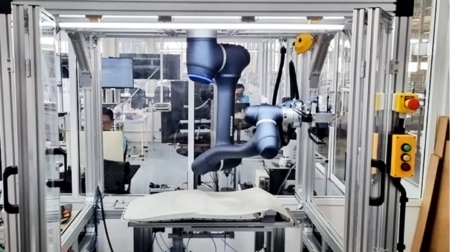Jaguar Land Rover has announced that will be implementing artificial intelligence (AI) and machine-learning algorithms to predict disruptive events and how they might impact its supply chain.
The technology is designed to improve supply chain visibility, allowing Jaguar Land Rover to monitor its real-time activities and respond quickly and appropriately to any issues that may arise.
There has been an increased impetus from firms to improve the resilience of supply chains due to the global disruption caused by the Covid-19 pandemic and Russia’s war on Ukraine. At the G7 Summit in Japan just weeks ago, world leaders and financial experts emphasised the importance of supply chain resiliency in the face of global conflict.
The company will partner with California-based supply-chain data insight firm Everstream Analytics to introduce the machine-learning technologies.
The decision to invest in AI technology is motivated by Jaguar Land Rover’s intent to progress with its Reimagine Strategy, which has set a target of 2039 for reaching carbon net zero as well as reducing its greenhouse gas (GHG) emissions by 54% across its entire supply and operations chain by 2030, when compared with figures from 2019.
This strategy also commits to huge changes in car manufacturing, with Jaguar set to become a pure-electric brand from 2025.
Barbara Bergmeier, executive director of industrial operations at Jaguar Land Rover, said: “As part of our Reimagine Strategy, we are building a robust digital-first industrial operations ecosystem consisting of advanced technology and long-term strategic relationships that gives us end-to-end visibility of global shocks in an increasingly unpredictable world.
“…This foresight will become even more critical as we develop a new value chain around our next generation ultra-desirable modern luxury electric vehicles.”
The semiconductor shortage is an example of how global crises can disrupt supply chains. In its yearly financial report, released in May, Jaguar Land Rover cited improvements to chip supply as a key factor in its growth in revenue between the 2023 financial year and the previous year. The company reported a 25% revenue increase, taking the total for the year to £22.8bn.
With Jaguar focusing more on electric cars ahead of the 2025 shift to pure-electric, it is important that disruptions to the supply of vital components like semiconductors, as well as other unexpected challenges, don’t impact production and delivery too significantly.








